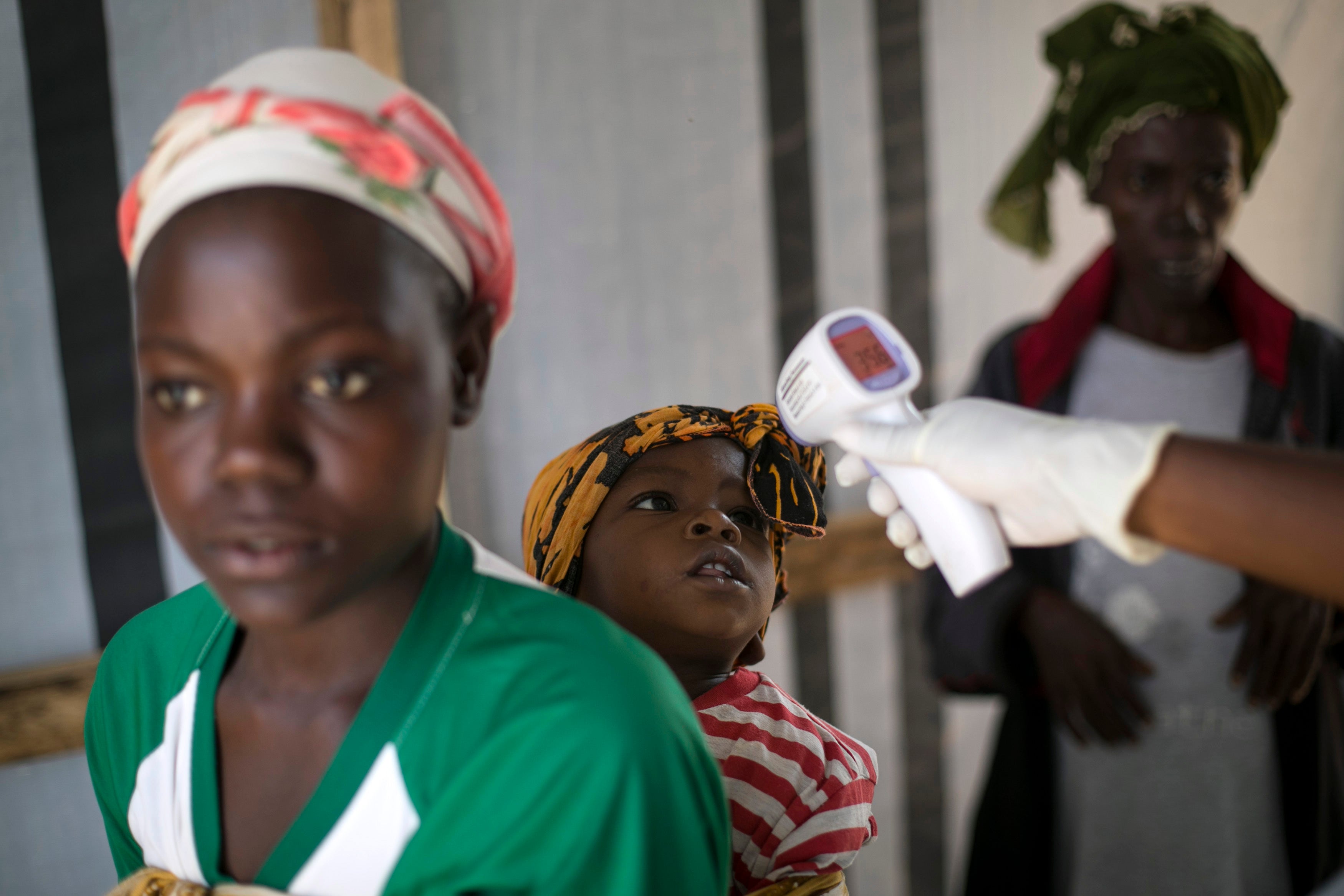How to keep health delivery on track during a pandemic
New research: Trained, supported and equipped CHWs can deliver PHC during pandemics

Properly trained, supported and equipped Community Health Workers (CHWs) were able to stop disruptions to the delivery of primary healthcare during the COVID-19 pandemic, according to new research from four sub-Saharan African countries.
A large body of evidence supports the finding that epidemics and pandemics typically present a shock to health systems, often disrupting the delivery of critical primary healthcare. Such service disruptions often kill more people than the pandemic itself. For example, researchers previously found that the 2014-2015 Ebola epidemic, which killed healthcare providers and shuttered health clinics in Guinea, Liberia, and Sierra Leone, significantly increased deaths from malaria, HIV, and tuberculosis. Researchers calculated that disruptions to healthcare during the Ebola epidemic resulted in 10,623 extra deaths from these three causes alone – nearly identical to the 11,310 deaths caused by the Ebola virus itself.
The new research during the COVID-19 pandemic focused on CHWs in Kenya, Uganda, Malawi, and Mali. It found that when CHWs were trained, supported, and equipped with personal protective equipment (PPE), they were able to ensure communities continued to have access to lifesaving primary healthcare. The findings demonstrate the value of professionalizing CHWs (training, equipping, and paying them to work in challenging conditions such as an epidemic or pandemic) and indicate that the costs of not doing so may be larger than previously estimated.
“This is important because, the majority of CHWs globally remain unpaid and largely unsupported,” said the study’s lead author Dr. Madeleine Ballard, Executive Director, Community Health Impact Coalition, and Assistant Professor at Icahn School of Medicine at Mount Sinai.
The 7,845 CHWs included in the study, located in 27 sites across the four countries, serve more than five million patients. The CHWs were supported in line with the WHO guidelines and received COVID-19 training and personal protective equipment within 45 days after the first case was detected in their respective country. Their training curriculum included COVID-19 safety protocols such as: how COVID-19 spreads; identifying common symptoms; how to protect themselves; how to talk with community members about COVID-19; and their own role in combating the spread of the virus. Researchers found no disruptions to CHWs' proactive household visits, iCCM assessments, the registration of pregnancies or the delivery of postnatal care. And, there were no deaths of CHWs from COVID-19.
“Our results provide an important counter-narrative to the prevailing discourse on COVID-19 and essential health service delivery in which critical disruptions were expected, identified, and even understood as inevitable,” wrote the authors of the study.
Unfortunately, more than one year into the pandemic community health workers in many geographies still have not received PPE. A look at the scale of the challenge helps explain why. According to a report by the Center for Global Development, 24 countries, which make up 80 percent of the population in sub-Saharan Africa, rely heavily on 916,000 CHWs (14 percent are salaried and 86 percent are volunteers with some or no compensation) to deliver basic healthcare to more than 400 million people. That is approximately 40 percent of the African continent. The World Bank estimates that there are 3.5 million CHWs worldwide.
These frontline health workers require hundreds of millions of pieces of PPE, from masks and gloves to goggles, to safely continue their work during the pandemic, at a moment when such PPE is in short supply.
The "COVID-19 outbreak has caused a surge in demand for—and corresponding global shortage of—PPE,” according to the CGD’s report. “While this deficit affects all health workers, recent evidence suggests CHWs in low- and middle-income countries have been disproportionally affected, due - in large part - to their incomplete integration within national health systems.”
At least initially, it appears that countries, even those that rely on CHWs to deliver essential preventive care to a majority of their citizens, did not prioritize equipping those CHWs with PPE, the CDG found.
This mismatch between how reliant health systems are on CHWs and how poorly these same frontline health workers are supported is deeply problematic and dangerous, said Ari Johnson of CEO of Muso, which supports CHWs in Mali, and participated in the research.
“Many countries around the world now count on CHWs to lead the charge toward universal healthcare and to stem the spread of the pandemic,” said Johnson. “But in many contexts, CHWs do not get the fair payment, supplies, and supervision support required for them to lead and deliver.”
"By not equipping CHWs, we are undermining their safety, performance, and impact to our great peril," said Johnson.
"The pandemic has left millions around the world to die in their homes waiting for care," he added. “But not everywhere. Not in the places where we provide CHWs the support they deserve. We have the tools today and we must act. The stakes could not be greater."
